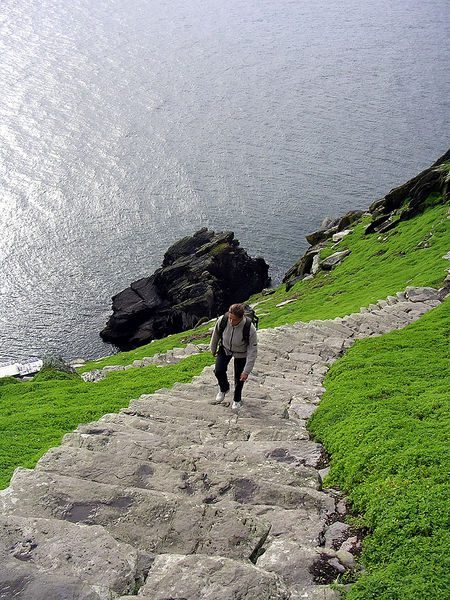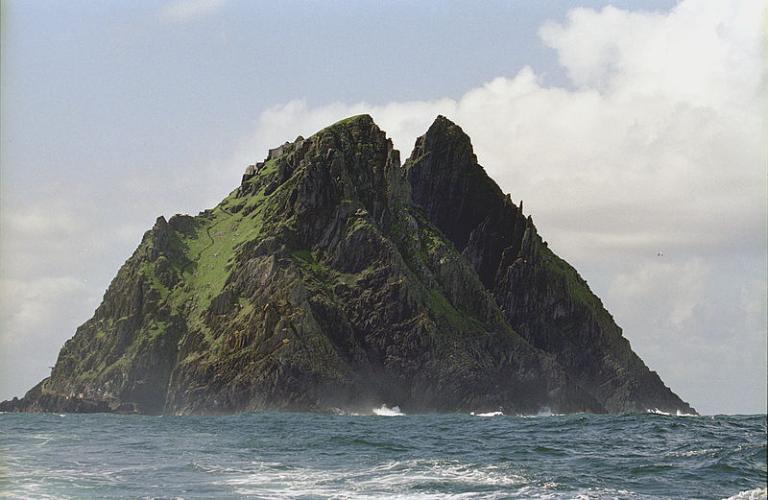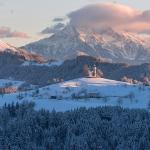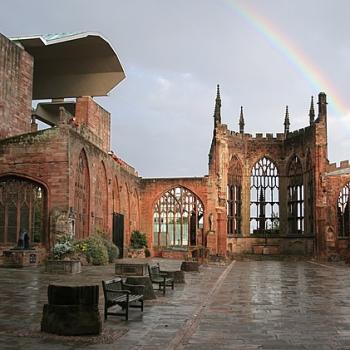
(Wikimedia Commons public domain image)
Christmas is winding down. In certain areas of the globe, indeed, the Christmas holiday is already receding into the past — and a time that is often associated with resolutions for the future is rapidly approaching.
Many of you, no doubt, follow the same brilliant labor-saving technique that I do: I simply dust the previous year’s list of unfulfilled resolutions off and then recycle them yet again. For those, however, who may perhaps aspire to a bit more, I share this column, which I published in the Deseret News back on 31 December 2020 when we were beginning to emerge from the constraints of the Covid-19 pandemic:
“More than resolutions: How religious holidays, traditions prompt remembering, reflection: Reflection, coupled with the notion of new beginnings, is at the very core of many religious beliefs and practices, including during Easter, Passover, Christmas, Ramadan, Yom Kippur and the sacrament.”
As with so much else this year, celebrations of New Year 2021 will be different. Perhaps, since our typical New Year celebration is almost precisely opposite what it ought to be, they’ll be even better.
At a season when many formulate personal resolutions for the next 12 months, overeating and raucously partying until almost morning provide little opportunity for taking stock or for reflection. And sleeping into the forenoon, perhaps cognitively impaired by a hangover, probably doesn’t advance most New Year’s resolutions very well.
But, despite all the obstacles that we’ve erected against it, the turning of the year does afford a reasonably good occasion for remembrance, for reflection on the events, achievements, and failures of the preceding 12 months, and for learning from them. Moreover, such reflection, coupled with the notion of new beginnings, is at the very core of many religious beliefs and practices.
In the annual ritual of the Passover seder, for example, observant Jewish families reenact the meal that their ancestors consumed in Egypt and reflect upon the Exodus of the Children of Israel from their slavery in the Nile Valley.
At Easter time, devout Christians meditate on the even greater deliverance that Christ provided, through his atonement and resurrection on a Passover weekend, from the bondage of sin and death.
In the liturgy of the Mass, also known as the eucharist, communion, or, among Latter-day Saints, the sacrament, believers reenact the Last Supper of Jesus and his disciples (Matthew 26:17-30; Mark 14:12-26; Luke 22:7-39; John 13:1-17:26; 1 Corinthians 11:23-26) — which was itself a celebration of the Jewish Passover — and commemorate his sacrificial death and atonement on their behalf. The heart of weekly worship in many Christian denominations, it is an occasion for meditation, reflection, and, for Latter-day Saints, for covenant-renewal and recommitment not unlike their temple worship. And not unlike the serious resolutions of an ideal New Year’s holiday.
The righteous kings among the ancient Jaredites, a non-Hebraic people who left the Old World for the New centuries before the institution of the Passover and the Israelite escape from Egypt, were those who “remembered the great things that the Lord had done” for their ancestors in bringing them across the sea and who passed those memories on to the next generation (Ether 6:30; 7:27; 10:2).
In Christmas, beneath all of the glitter and commercialism, believers remember the coming of God in the flesh. As one carol, “The Wexford Carol,” exhorts us, “Good people all, this Christmas-time, consider well and bear in mind what our good God for us has done, in sending His beloved Son.”
Among members of The Church of Jesus Christ of Latter-day Saints, handcart treks have become almost a rite of passage for youthful church members. These experiences are not designed merely to satisfy antiquarian interest or to have a fun outdoor adventure. Rather, the intent is to connect both the youth and their elders to the heroic sacrifices of their pioneer predecessors (especially in the Martin and Willie handcart companies), to help participants to identify with their spiritual ancestors and to emulate their religious commitment.
During Yom Kippur, the Day of Atonement, pious Jews humbly remember the nomadic lives of their ancestors and solemnly repent of their shortcomings.
In Islam, daily dawn-to-dusk fasting during the lunar month of Ramadan commemorates Muhammad’s first revelation. Devout Muslims commonly read the entire Quran over Ramadan’s 29 or 30 days; all Arabic editions of the Quran are marked into 30 equal portions for precisely this purpose.
Every year, too, Shiite Muslims (especially in Iran) commemorate the martyrdom of the Prophet Muhammad’s grandson Husayn in a “passion play” known as “ta’zieh “(or “ta’ziya”). The term “passion play” points unavoidably to its counterparts in the Christian tradition — the most famous of them being the “Passionspiele” at Oberammergau in Bavaria, which have been performed roughly every 10 years since 1634. (See the previous column “Four centuries of Christian devotion in a small Bavarian town” on www.deseret.com).

(Wikimedia Commons public domain image)
Still, while Christmas remains on our minds — and perhaps, for a few hours more, on our calendar — we won’t be injured at all if we continue to think about it. Here is a good piece from the editors of the Deseret News that I commend to your notice: “Opinion: ‘He appeared and the soul felt its worth’: The James Webb Telescope has shown the world a glimpse into endless and spectacular creation. The question is, do puny humans on a tiny speck of a planet really matter?”













